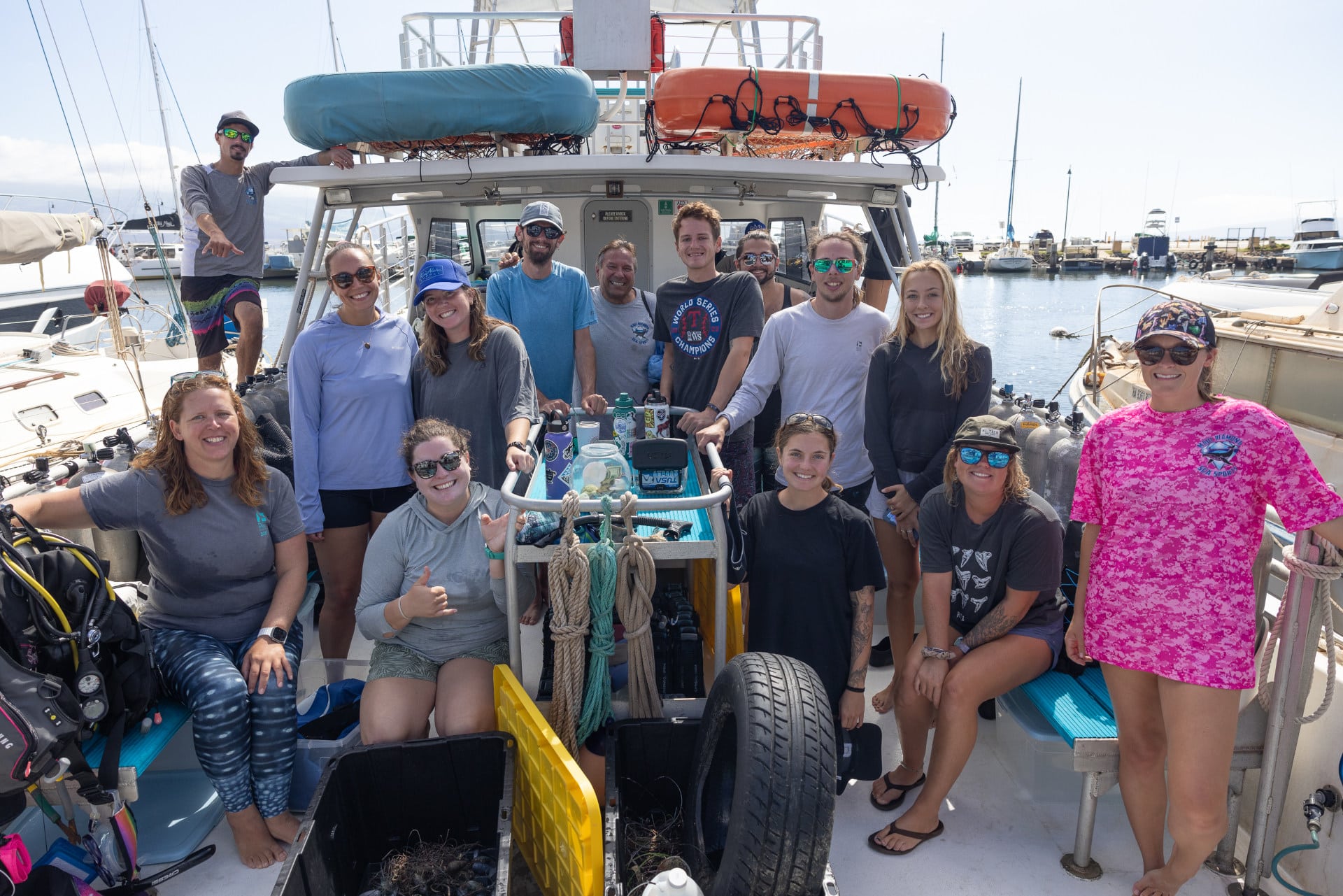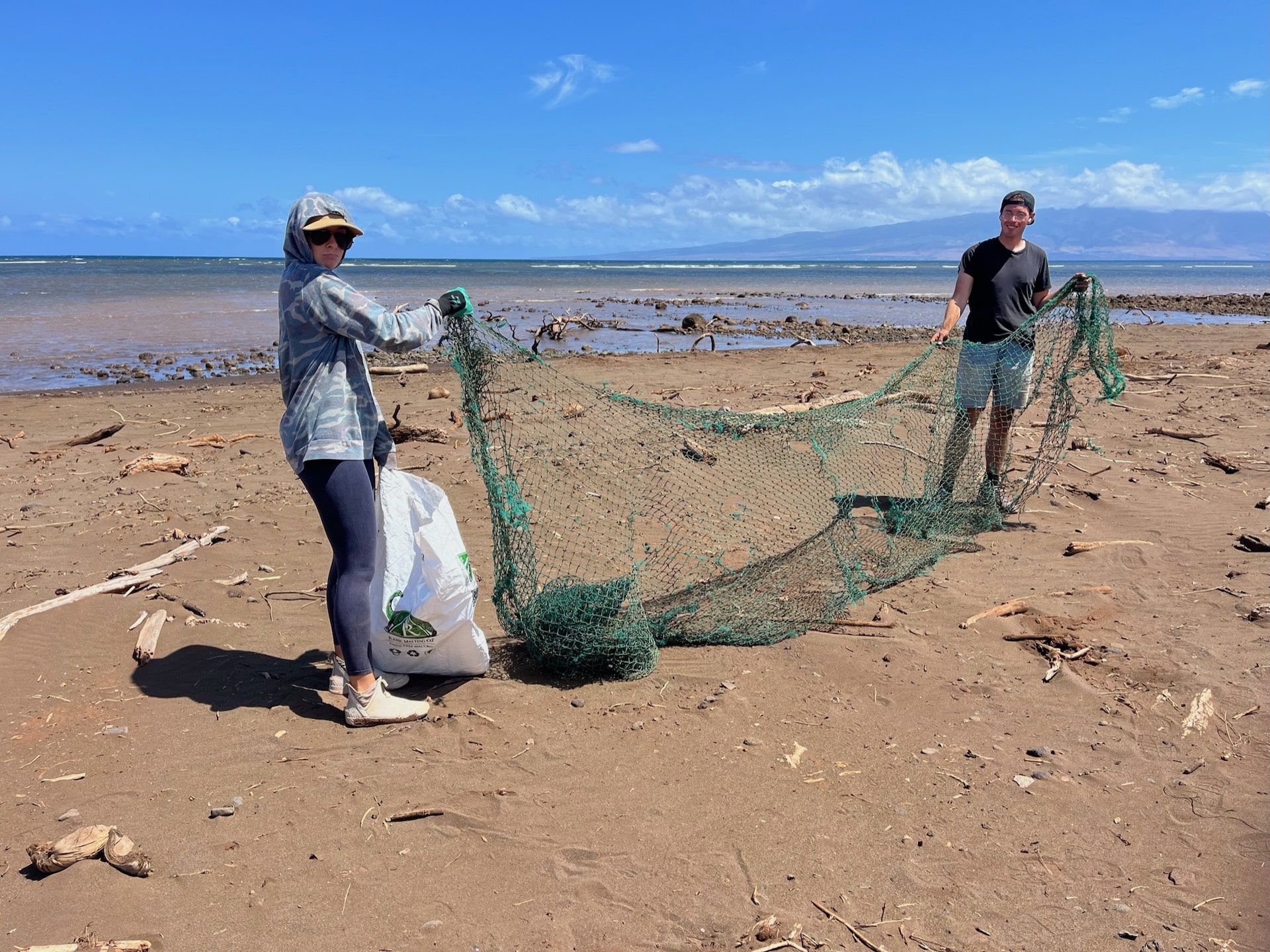
Conservation team, Research team, and PacWhale Eco-Adventures vessel staff came together to create the Mauka to Makai initiative focusing on restoring the health of Maui’s ‘aina (ocean, land, and air).
This program is funded by the Maui Conservation fund which was created following the fires from contributions donated from generous supporters world-wide. Since beginning this work PWF has also applied for a variety of grants to continue funding the Mauka to Makai program long term. Supporters who wish to donate to this program can do so here.
Coral Reef Ecosystem Monitoring and Restoration
Coral reef ecosystems immediately adjacent to the devastated areas of Lāhainā are threatened by toxic runoff, harmful substances from sunken boats in the harbor, and overall potentially harmful water quality caused by the fires. These challenges add to the ongoing threats to marine ecosystems posed by climate change. Coral reefs support an incredible amount of marine species per square area, serve as a nursery for many species of fish, sequester carbon dioxide, create world-renowned waves, and protect shorelines from erosion and damage. Taking care of coral, the foundation of Hawaii’s oceanic ecosystem, is necessary for the health of Maui’s ʻaina and the health of the entire planet.PWF Conservation is currently monitoring coral reef ecosystems by capturing coral substrate photography for analysis and conducting abundance studies of indicator species at two locations in West Maui. In September 2023, PWF Research conducted systematic drone surveys over West Maui, which will be used to analyze oceanic and terrestrial composition and associated changes that may occur as a result of the fires. PWF plans to use this composition of data to inform coral restoration initiatives, with the collaboration, partnership, and support of coral restoration experts and Native Hawaiian cultural advisors.


Fire-Related Debris and Coastal Ecosystem Monitoring
In response to the recent wildfires in Lāhainā, PWF Conservation and Research initiated a comprehensive strategy to assess the fire’s impact on the distribution and accumulation of fire-related debris on land and in the ocean. Daily land-based marine debris surveys and weekly ocean-based surveys were conducted throughout September and October. Additionally, the beach cleanup programs Adopt a Beach and Coastal Marine Debris Monitoring were expanded to include fire debris. The beach survey team collected 1,461 debris items in the first month from beaches directly outside the burn zone, mostly plastic and non-fire related. Additionally, PWF voyaged to Lānaʻi for the organizationʻs first beach cleanup on the island, after receiving reports of massive amounts of fire-related debris washing up. With the help of community volunteers, PWF successfully removed 2,980 items ranging from plastic pieces to burned debris to fishing nets, with a total weight of 580 pounds. While on Lānaʻi, the PWF education and conservation teams taught 3rd - 5th graders, reaching 124 students, covering important coastal marine debris topics and issues with plastic pollution in our oceans.Looking toward the future, PWF plans to keep directing efforts towards effective coastal ecosystem monitoring. The team plans to return to Lānaʻi quarterly to continually aid in removing debris from the island’s coastline and lead similar educational programs covering marine conservation topics, oceanic threats, and how to address them. Additionally, PWF Conservation is beginning bi-monthly SCUBA reef cleanup events to clear debris out of the ocean’s coastlines. To address coastal, terrestrial debris monitoring, beach cleanup kits will continue to be provided to various locations on Maui and Lānaʻi.

